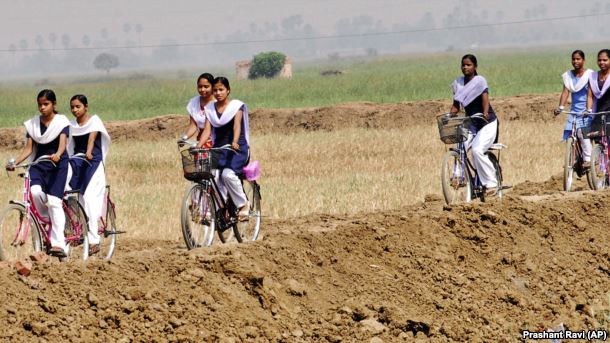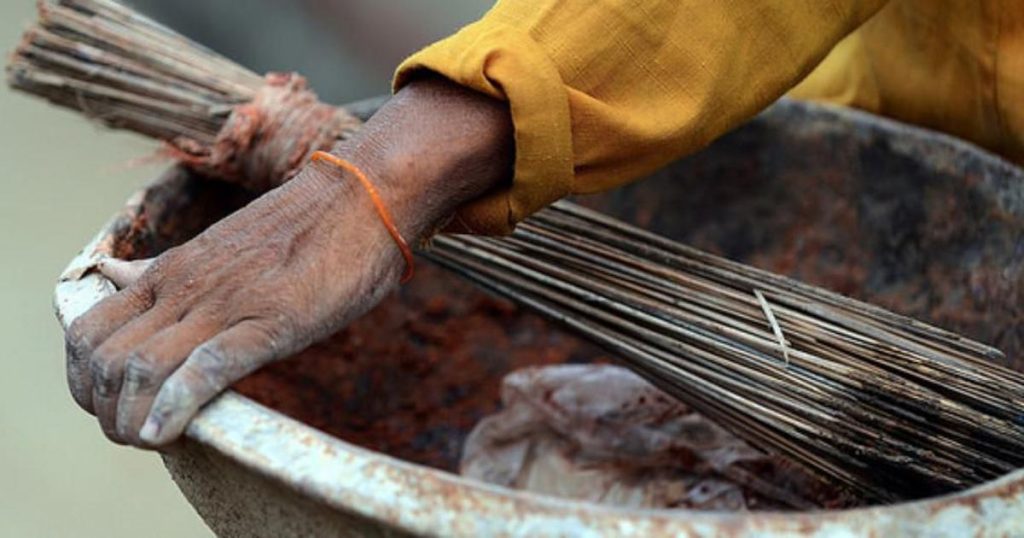
Indumati Shivaraj’s routine has been the same for more than a decade – at dawn, she walks to her “master’s” house, mucks out the cattle shed, cleans the tools and sweeps the yard. Four hours later, she walks home.
Besides a cup of tea each day, Shivaraj, 45, gets about 3,000 Indian rupees ($40) a year and a few sacks of grains for her labour.
She is among thousands of Dalits – considered India’s lowest caste in an ancient social hierarchy – who work for little or no pay in the homes of upper-caste families in Karnataka state under a custom called “bitti chakri” that was recently outlawed.
November’s ban on the long-standing tradition by the government of the southern state came after years of campaigning by anti-slavery groups for bitti chakri to be recognised as bonded labour.
“It’s a rare acknowledgement of the fact that such forms of bonded labour still exist in the country,” said Kiran Kamal Prasad, founder of the Jeevika charity that led the fight against bitti chakri.
India outlawed bonded labour – or debt bondage – in 1975, but it continues to be the most prevalent form of slavery, with people trapped into working without pay in fields, brick kilns and mills to pay off family debts.
Under the abolition of bonded labour law, the offence is punishable with imprisonment for up to three years and a fine.
In bitti chakri, there is not normally a debt to repay – rather a customary obligation to fulfil. Payment is usually in kind, and the expectation of free labour often passes through generations – resulting in decades of slavery, Prasad said.
“This form of slavery is not like debt bondage, where people are forced to work to pay off loans. Here there is no loan, just an understanding that a Dalit person is obligated to work for a landlord, practically for free,” he said.
At the anti-bonded labour department in Karnataka’s state government, director Revanappa K said it was an “age-old practice where landlords used lower-caste people to work and gave them foodgrains in return”.
“In today’s age, we’re recognising it as a form of bonded labour,” he told the Thomson Reuters Foundation.
“Fair wages must be paid, not just grains,” he said.
‘TOO SCARED TO COMPLAIN’
Jeevika found more than 3,000 Dalit families in 15 Karnataka districts were “working for free”, while a further 10,000 were doing unpaid labour during weddings, funerals and other ceremonies, according to a 2019 report by the charity.
They were given some maize, wheat or pulses in return and, on rare occasions, a token sum of money.
Social worker Indumathi Sagar, 44, regularly visits villages in the Bidar district of Karnataka, stopping at Dalit homes to ask them about where they work and how much they earn.
“There are so, so many still trapped in bitti chakri, too scared to complain against the landlords who live down their street,” Sagar said by phone from her home in Bidar.
“They know they are being exploited, they understand their rights but it is very difficult for them to break free from the tradition.”
In other parts of the country, similar forms of caste-based “customary” labour have faced closer scrutiny in recent years.
In the eastern state of Odisha, Baghambar Pattanaik led a campaign to ensure barbers and workers hired to wash clothes did not have to work for free for upper-caste people – leading the state to include the custom in anti-slavery laws.
As a result of that, more than 2,000 barbers and washermen have been given release certificates by the government since the ban was implemented a decade ago, he said, adding that more remained to be done.
“Implementation of the law has always been a challenge, particularly in cases of free labour, where the usual parameters of bonded labour like confinement and abuse don’t always exist,” Pattanaik said.
“Besides banning, governments have to seriously undertake surveys to identify these people, who are too scared to speak up because of years of oppression they have faced. Otherwise, it will remain a change on paper.”
Shivaraj, who works as a low-paid casual labourer in addition to her daily unpaid toil at her “master’s” house, said she hoped the ban on bitti chakri might give her a way out – allowing the family to earn enough to pay off their debts.
“We have accepted it as our reality but hope that with the new ban, maybe things will change in the future. If we get proper wages, we will not be forced to take loans again.”
Featured Image : Google Images

